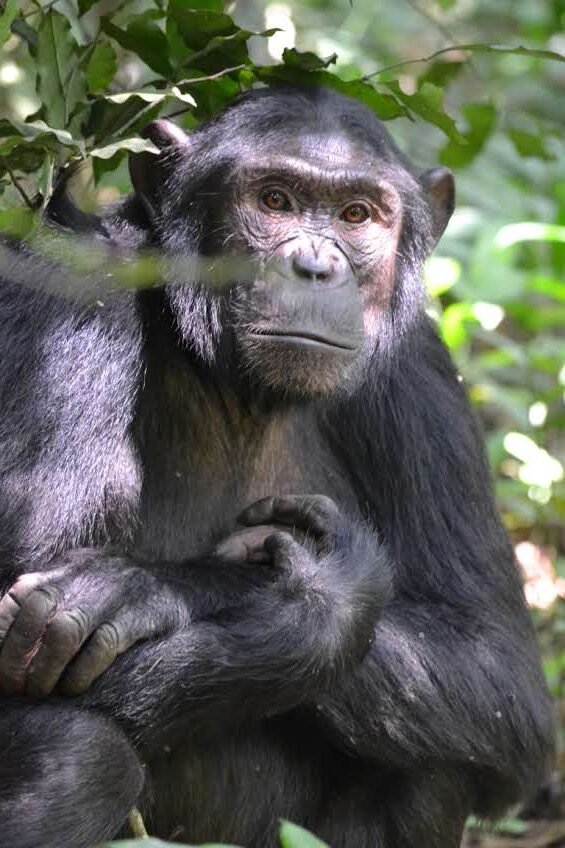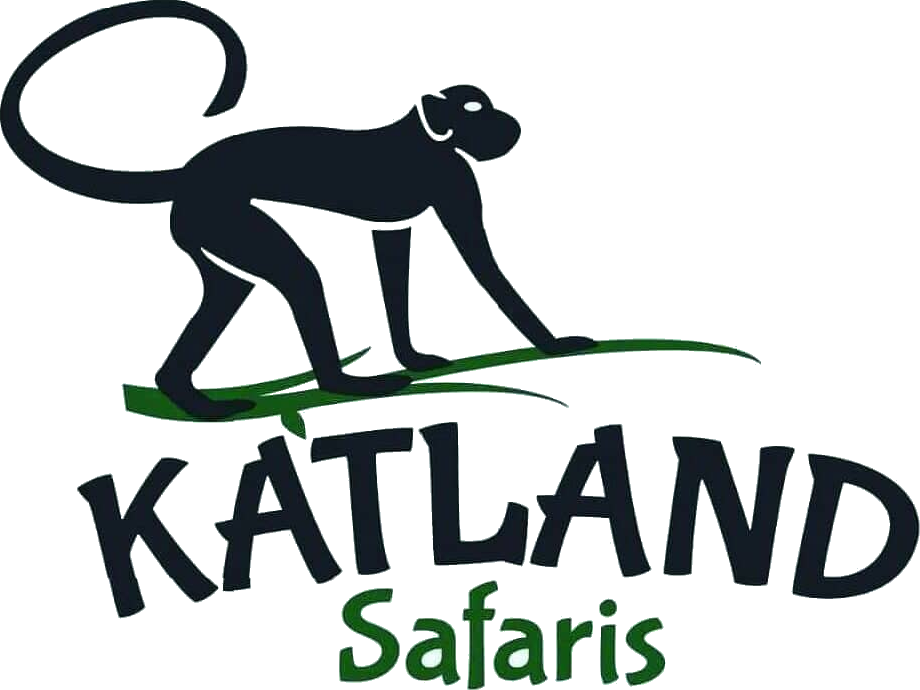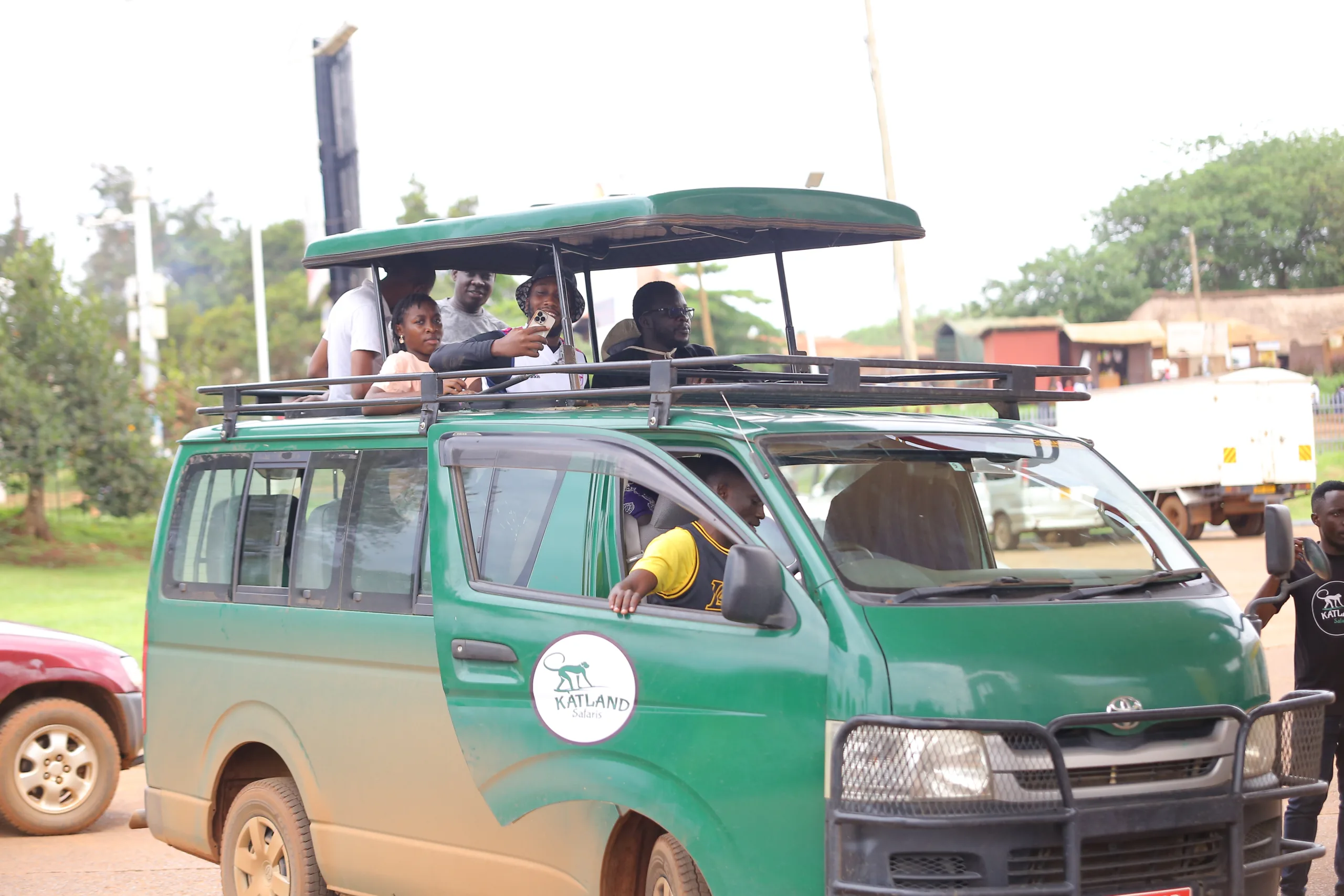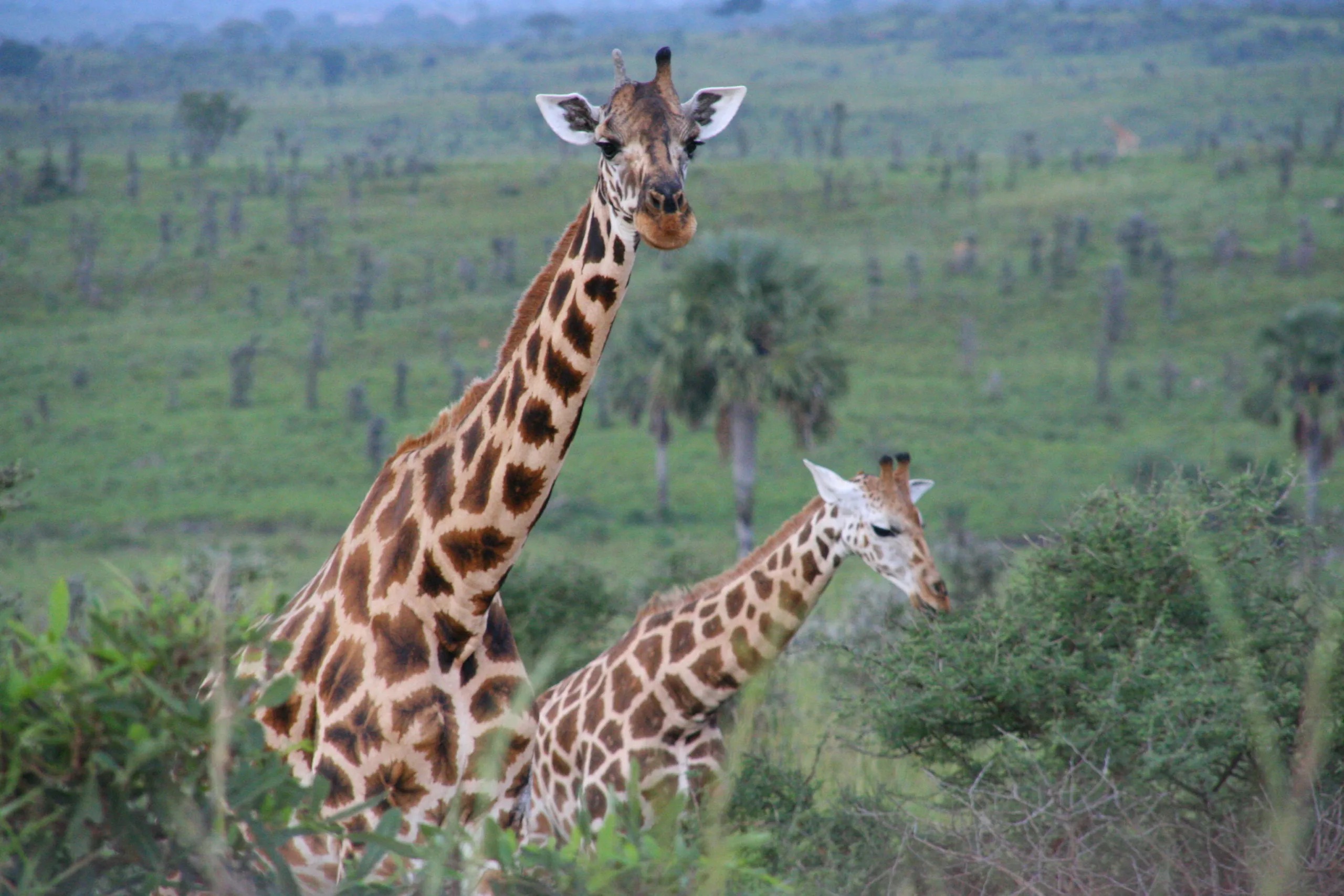Reasons to Visit Kibale Forest National Park, the Primate Capital of the world, Chimpanzee trekking safaris in Uganda
Reasons To Visit Kibale Forest. With industrialization and global warming sweeping the globe like wildfire, it is becoming increasingly difficult to find pristine places like Kibale National Park. One of the few remaining tropical rainforests where chimpanzees and other primates can find a home is Kibale National Park.
There are currently approximately 1500 chimpanzees known to roam the Kibale Forest. To engage in chimpanzee trekking or habituation, a permit card is required.
Birdwatching in Kibale National Park is a rewarding experience because over 325 bird species, including endemics of the Albertine Rift, find refuge in this tropical rain forest.
Kibale National Park is home to about 15 other primate species, including red-tailed monkeys, black and white colobus monkeys, and olive baboons, which can be observed during a guided primate walk through the jungle.
In Kibale National Park, what should one do? | Reasons to Visit Kibale Forest
Trekking chimpanzees. With the most habituated chimpanzees in East Africa, Kibale National Park is Uganda’s largest chimpanzee trekking habitat. A chimpanzee trekking permit can be obtained from the Uganda Wildlife Authority or via a travel agency such as katland Safaris.
The day hiking with chimpanzees begins early, typically between 8:00 a.m. and 1500 p.m. Your trip will be more pleasurable and unforgettable if you have the proper chimpanzee trekking equipment, such as safari boots, convertible pants, long-sleeved shirts, and others.
What Is The Price Of A Kibale National Park Chimpanzee Permit? – Reasons to Visit Kibale Forest
For foreign nonresidents, each Chimpanzee permit costs $300; for foreign residents, it costs $250; and for East African residents, it costs 150000shs.
The following is included in the price of a Kibale chimpanzee trekking permit:
Park admission costs.
Costs for ranger guides.
Spending an hour with chimpanzees.
Safety when walking with chimpanzees.
Assistance from the local community.
Support for chimpanzee conservation.
Transportation, gratuities, porters, and any other personal belongings are not included in the price of the chimpanzee trekking permit for Kibale National Park.
Is it possible to reschedule my Kibale National Park Chimpanzee Trekking Permit?
The Uganda Wildlife Authority must grant authorization for you to reschedule the cost of the chimpanzee trekking permit for Kibale National Park.
Send a letter to the Uganda Wildlife Authority asking for a date adjustment for the chimpanzee expedition. If at all possible, provide proof to support this.
Your chimpanzee trekking permit is transferred to the new date based on the current availability status after it has been authorized.
You must top up the Chimpanzee Trekking Permit before rescheduling if it still has to be done.
Can I buy the Kibale National Park Chimpanzee Permit in installments?
Chimpanzee trekking permits can be purchased in installments from the Uganda Wildlife Authority, but only if the permits are purchased 90 days before the trekking date. 30% and 70% down payments are available for the Chimpanzee trekking permits for Kibale National Park.
Ninety days following the trekking date, you must remember to renew your partially paid chimpanzee trekking permits.

There is a penalty for noncompliance.
Experience of Chimpanzee Habituation in Kibale National Park
Join a group of researchers and habituators as they trace and follow a semi-habituated chimpanzee colony in the wild as part of Kibale National Park’s Chimpanzee Habituation Experience. This allows them to acclimate to human presence without changing who they are.
To participate in this activity, it would be ideal to acquire a Uganda Wildlife Authority chimpanzee habituation permit.
You get up early and follow researchers and habituators as they follow the chimpanzees during the chimpanzee habituation experience, often known as CHEX. You might see them just leaving their nests or de-nesting. To preserve recollections of your encounter, you take notes, observe the chimpanzees going about their daily lives, and snap pictures of them.
A troop of habituated chimpanzees may be followed by up to four gorilla permits. You have four hours to spend with the chimps once you find them.
What Is The Price Of A Kibale National Park Chimpanzee Habituation Permit?
It costs $300 per person per trek to obtain a chimpanzee habituation permit for Kibale National Park. To avoid last-minute anxiety when checking for availability, you can reserve the chimpanzee permits in advance. However, each group is only permitted to have a maximum of four chimpanzee habituation permits per day.
What Does Kibale National Park’s Chimpanzee Habituation Permit Include And Not Include?
The following is included in the price of the Kibale National Park permit:
A price for the researcher.
Charge for ranger guides.
Safety during the habituation period of chimpanzees.
Conservation for chimpanzees.
Spending four hours with chimpanzees.
Assistance from the local community.
Park admission costs.
The expense of transportation during chimpanzee habituation, gratuity, porter, and any other personal belongings are excluded.
Can I buy permits for the chimpanzee habitat in installments?
For chimpanzee licenses purchased ninety days before the habituation date, the Uganda Wildlife Authority accepts installment payments. The ideal way to enjoy this experience is to pay in full for your chimpanzee habituation permit; however, depending on your situation, you may choose to pay in installments.
A penalty will be imposed if the top-up is not completed within ninety days of the habituation date.
Kibale National Park birdwatching
A variety of rainforest birds can be seen in Kibale National Park, a vast biosphere national park. This tropical rainforest is home to about 335 different kinds of birds, and the main road near the Kanyanchu Visitors Center is the greatest place to go birdwatching.
A Ugandan birdwatcher’s paradise, the Bigodi sanctuary in Magombe Swamp is located just outside Kibale National Park. Birds like the endangered grey-headed Olive-back, Black-crowned Waxbills, Green-backed Twin Spot, Black and White Mannikin, and others can be seen from the observation tower and boardwalk.
Observing primates at Kibale National Park
During a primate walk, you can see approximately 13 different species of primates that call Kibale National Park home. Other primates, such as L’Hoest’s, potato, red colobus, blue, black and white, grey-cheeked mangabey, olive baboons, bush infants, and red-tailed monkeys, may be seen in addition to chimpanzees.
To guide you through this primate search, you will require an accompanying ranger guide.
Nature Trail and Cultural Heritage
Visitors can follow the two to six-day trails through the forest on this former long-distance walk. This hike begins in Sebitoli or the Kanyanchu Visitor Center and ends there. In places like Kikoni, Nyakalongo, and Nyaibanda, you can spend the day exploring the forest and come out in the evening to spend the night.
You can engage with locals, particularly those from the Bakiga and Batooro cultures. To assist you with lifting your things, you can hire porters. A porter is someone who helps you carry your things in the woods for a reasonable fee. The local community uses this cash to assist their family, thus this is the most direct approach to help them.
Activities for Kids in Kibale National Park
Kibale National Park offers kid-friendly activities because children under the age of 15 are not permitted to go chimpanzee trekking there. Children are led on a one to two-hour forest walk by trained instructors. In as little time as possible, the kids learn about ecosystems and the people that live there.
Youngsters engage in games and artistic pursuits like batik creation, cyanotype, photography, and pond dipping.
Hiking in the Forest in Kibale National Park
You investigate the park’s habitats while on the woodland stroll.
The grassland, swamp, riverine forest, and tropical rainforest keep an eye out for the various birds and primates that the forest is home to. Around 1400, the Elephant Wallow marks the end of this forest, which begins at the Kanyanchu Visitor Center.
Reservations are required for this hike.
What Time of Year Is Best For Kibale National Park Safari Reservations?
Although safaris in Kibale National Park are available year-round, the dry season is the best time to visit because of how vibrant the forest is. Other fascinating primates are fascinating to meet, and the chimpanzees are active in the wild.
In Uganda, the months of June, July, August, September, December, and January are often the busiest travel times during the dry season. During the dry season, Kibale National Park’s trails are easier to see because there is less overgrown vegetation to block your path.
Discounted rates from service providers are more likely to be available during the wet season, which is March, April, May, and November, and corresponds to the slowest travel times in Uganda. For people who have a limited
budget, take advantage of the off-season, and, if available, seize the chance for a discount.
In Kibale National Park, how much does a safari cost? | Reasons To Visit Kibale Forest
There are three price ranges for safaris in Kibale National Park: premium, mid-range, and cheap. You must get the required permits if you plan to engage in chimpanzee trekking or habituation. As previously stated, the expense of each chimpanzee permit affects every budget.
The following variables affect the price of safaris in Kibale National Park:
Days spent at Kibale National Park
The cost of the safari increases with the number of days spent in Kibale National Park. The majority of service providers charge daily fees for things like lodging and car rentals.
It’s time to reserve your safari in Kibale National Park.
Because of the great demand worldwide, safari package prices are high during the busiest months of June, July, August, September, December, and January. Discounts are occasionally given by service providers during off-peak hours.
Activities available at Kibale National Park
Because each activity in Kibale National Park has a distinct fee, the cost increases as you engage in many activities there.
The safari package you select for your tour of Kibale National Park
The price of a premium, mid-range, or low-cost safari package varies since the inclusions and exclusions vary. The cost of the safari increases with the number of inclusions.
Is it safe to visit Kibale National Park?
A skilled group of rangers and wardens look after the animals at Kibale National Park. They work to raise residents’ understanding of the importance of protecting chimpanzees in their natural habitat.
To maintain peace and order in and around Kibale National Park, other Ugandan security agencies conduct operations there.
If you want to go into the forest for any activity, you must be careful about your personal safety and look for an escorting guide. Primates and other wild creatures, such as enormous forest hogs and forest elephants, can be found in this rainforest. It might not be a good idea to face these by yourself because you are not accustomed.
Unknown individuals might not have your best interests in mind, so don’t let them into your room.
Keep any transactions involving significant sums of money out of the spotlight to avoid drawing the attention of thieves.
What Should You and Should Not Do When Visiting Kibale National Park? | Reasons To Visit Kibale Forest
Chimpanzees are wild animals that should rely on the forest rather than human food, hence they shouldn’t be fed. You should be at least 300 meters away from the chimpanzees if you want to eat or smoke.
Since chimpanzees are quite prone to human infections, offer to stay behind if you have the flu, a cough, COVID-19, or anything else.
It is not a good idea to provoke or imitate chimpanzees since you might need to be aware of what you are saying.
It is safe to enter Kibale Forest National Park with a guide. Seek a ranger guide if you want to go on a woodland stroll.
Chimpanzee trekking and habituation experiences are only permitted for those who are at least 15 years old. This is because during chimpanzee trekking or habituation, all participants are expected to adhere to certain standards, which may be more difficult for a youngster younger than this to obey.
Ask the ranger guide to dig a hole for you that is at least 30 cm deep and completely cover it when you need to urinate.
When taking pictures, avoid using a flashlight. Chimpanzees are easily frightened by odd things that happen around them.
When you find chimpanzees, avoid encircling them. They can feel like they’ve been ambushed.
No throwing trash or littering into the forest, which is home to chimpanzees and other forest inhabitants.
To reduce the possibility of transferring any germs to the chimps, stay approximately 8 meters away from them once you have located them.
You have four hours to spend getting used to the chimpanzees and one hour to hike them after you find them.
As a response to the coronavirus pandemic, masks are required for chimpanzee trekking and habituation experiences.
Booking gorilla trekking safaris in Uganda and Rwanda with Katland Safaris.
Katland Safaris organizes the best gorilla and wildlife safaris in East Africa. When it comes to gorilla trekking, we will book your gorilla trekking permits for Uganda`s Bwindi and Mgahinga gorilla national park and gorilla permits for Volcanoes National Park in Rwanda. Besides booking your gorilla permit, we will also put all other gorilla safari accessories, like transportation and accommodation, in one package to make your gorilla trekking safari a memorable adventure:
Your gorilla trekking safaris can be customized to meet your safari expectations and needs, and budget. The safari package can range from budget, mid-range, and luxury safaris.
Feel free to contact our team of excellent safari consultants to help you organize the best Africa gorilla safari ever.
Embark on an unforgettable Gorilla trekking and wildlife safari experience in Uganda and Rwanda.
WhatsApp us at +256705778866 to book your safari today!
Email us at info@katlandafricagorillasafaris.com for more information
Visit www.katlandafricagorillasafaris.com for exciting tour packages and itineraries


